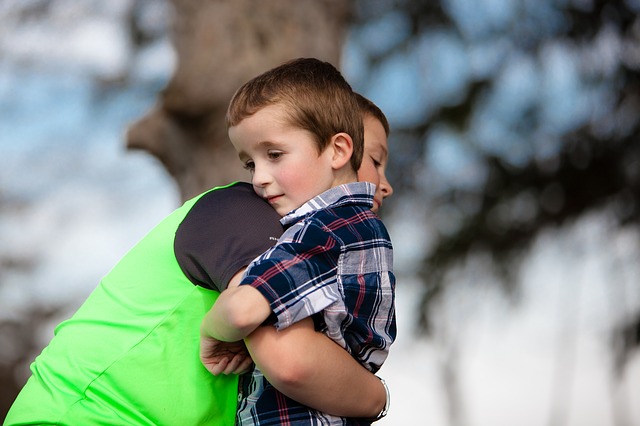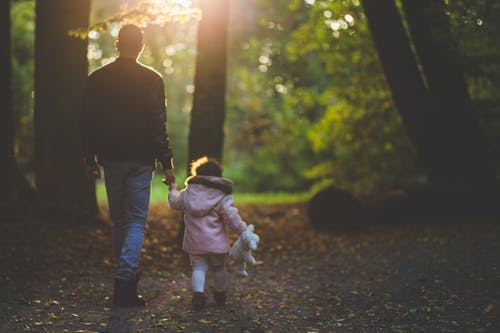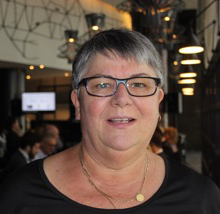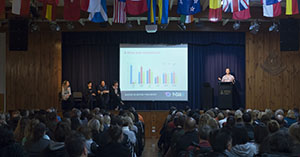As parents we need to help our kids step up when they see hurtful or hateful behaviour. We need to help them critique their assumptions about what kinds of behaviour everyone else thinks is OK. In adolescence, children place high value on what friends think, and they use that to guide their behaviour because they want to belong.
When you talk about these assumptions, children may find that actually their mates don’t want to be that kind of mate or that kind of boyfriend. Instead, they want to be a good friend, and our children need to think about what that means in terms of their behaviour towards other people.
Encouraging Children To Speak Up:
One of the most powerful things we can do as parents is hold up a light and show not everyone thinks it is OK. This gives children courage to speak up. So it’s important that schools and families highlight when something is unacceptable, such as sexual harassment or the harassment of girls about their bodies.
We’ve seen lots of examples quite recently of girls being ranked and rated online based on their looks.
In those situations, we need to ask ‘how do you think it would feel to be one of the many young women put up on that website having people making comments about their appearance?’. We need to help our children develop empathy. Without that conversation, it’s easy for young people to get carried away.
Take advantage of a story in the media or a storyline on TV and say ‘what would your friends do if that happened at school?’ or ‘how do you think the girls there would feel?’.
Ask them how they would feel if this happened to their sister. What do they think the repercussions are for girls whose images are put up on a website?
And remind them what it takes to do the right thing. It takes courage to not just be a bystander and to step up. Firstly, children need to be able to recognise that something is wrong. We need to identify scenarios and say that was wrong and this is why it was wrong and then assist them to think about its impact on the individual.

Source: Ambermb / Pixabay
Secondly, our children need to be able to suss out if that other person can take care of themselves, or does your child need to say something? And they have to know how to do that safely. Give them strategies, such as starting a conversation with the person who is being harassed or calling them to come and see something.
Or it might be a case of saying to whoever is doing the inappropriate behaviour that what they are doing is not on and letting kids know that other people think what is happening is wrong.
A key thing about bystander action is that it has been shown to make a big difference. Education programs that teach kids how to step up show it can limit the harm of a particular situation. And it helps to change culture because other boys and girls see that not everyone thinks a certain behaviour is OK. That has an enormous impact.
So have that conversation with children about the impact of bystander action on others. And keep talking to children about their definition of a good man or a good boyfriend or girlfriend. What does that mean to them? Help them set up an aspiration of the type of person they want to be.
Finally, what if your kids see that a situation is potentially very damaging and hurtful to someone and they aren’t able to safely step up? Ask them which adults they could talk to, to take action. It’s great to encourage kids to act, but it’s just as important to know when to seek help.
Jenny Walsh has written a range of publications about relationship and sexuality education. She is a former senior member of the Australian Research Centre in Sex, Health and Society at La Trobe University. www.justjennywalsh.com
Mental Health 101 by Parent Guides includes tips and tricks on navigating mental health for teens and how to shape them into empathetic and mentally string individuals.




